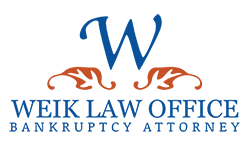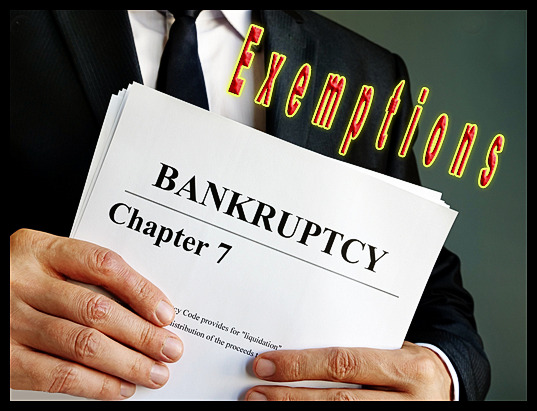GET HELP TODAY
Bankruptcy Lawyer in Raleigh Identifies the Exemptions Under Chapter 7 Bankruptcy in North Carolina
Chapter 7 bankruptcy brings debt relief to petitioners by selling their property and using the funds to pay their creditors. However, that does not mean that debtors have to lose all their property. Some exemptions allow them to keep certain types of property, which differ based on the state they are residing in. A bankruptcy lawyer in Raleigh explains how such exemptions work and what they include for North Carolina-based debtors.
How Chapter 7 Bankruptcy Exemptions Work
When debtors complete their Chapter 7 bankruptcy paperwork, they are required to list all their property along with any exemption that they wish to claim for each possession. This document is titled Schedule C, and it must be submitted to the Bankruptcy court.
Debtors can keep all the properties that are fully covered by an exemption. Everything that is not exempt will be sold by their trustee, and the proceeds will be distributed to their creditors.
The process can get complicated when a property is only partially covered by an exemption. In such cases, it is best to seek the assistance of a bankruptcy lawyer in Raleigh to avoid missteps that can set back the petition.
Chapter 7 Bankruptcy Exemptions in North Carolina
Like other states, North Carolina implements specific regulations that help let debtors protect their properties when they file a bankruptcy case. Here are the most common types of exemptions under the North Carolina state law:
Personal Property:
Up to $25,000 in college savings accounts, subject to limitations
$5,000 in clothing, on top of $1,000 per dependent for a sum of $4,000
$2,000 in tools of the trade
Homestead:
$35,000
$70,000 if the debtor is filing a joint bankruptcy case with his or her spouse
$60,000 if the debtor is aged 65 or older. His or her spouse has died, has tenants or joint tenants as rights of survivorship
Vehicle:
$3,500 for a single vehicle, but this does not apply if it was bought within 90 days of filing a bankruptcy case
Retirement/Pension:
Most retirement or pension plans are exempt per federal/state law
Income:
Work that is earned but unpaid done within 60 days before filing for Raleigh bankruptcy
Aside from these exemptions, it is also worth noting that North Carolina is among the handful of states that let debtors claim state exemptions only. They are not required to identify federal exemptions during filing.
Maximize Chapter 7 Exemptions with a Bankruptcy Attorney Today
Filing for Chapter 7 bankruptcy in Raleigh, NC does not have to mean relinquishing all your properties. Make the most of the program’s exemptions in relation to your financial situation.
If you are unsure of how to accomplish this on your own, we at Weik Law Office are more than happy to assist you. Trust our experienced bankruptcy attorneys with your case, and look forward to taking back control of your future.
Let us help you ease your debts and stabilize your financial situation. Call Weik Law Office today at 919-845-7877 for a FREE consultation.

